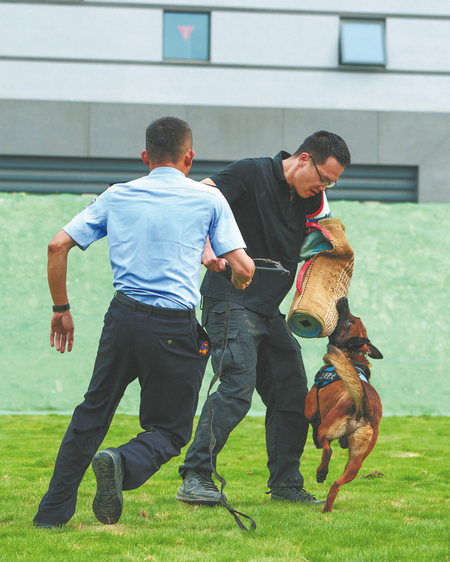

Police dogs play a unique and irreplaceable role in public security work, as they boast natural biological advantages in sectors such as odor tracking, evidence search, security patrols, explosion prevention and emergency handling.
"Although digitalization and informatization are widely used in solving crimes, police dogs still play an irreplaceable and ingenious role in some areas, especially in complex conditions without monitoring systems such as forests, mountains, city outskirts and suburbs," says Chen Chuan, head officer of the K-9 team at the 10th detachment of the Shanghai Public Bureau's criminal investigation department.
Chen points out that Shanghai has used police dogs in criminal investigations for over 70 years. In addition to joining other teams with police dogs to support in solving crimes, the K-9 team also shoulders the duties of breeding and training police dogs.
Currently, there are about 26 handlers on the K-9 team. Zhang, a handler since 1992, is one of them.
"It is physical and mental hard work, as well as skilled work. Police dog training is scientific and systematic and based on their neurotype and characteristics. Handlers must be very patient during the whole training process, as they have to repeat the same moves countless times to form one reflex in the dogs. It may take a month for the handler and the dog to form a conditioned reflex to one action," says Zhang.
On average, a police dog can serve for eight years. As fixed assets of the bureau, police dogs are bred on demand and training usually begins when the puppies are two or three months old.